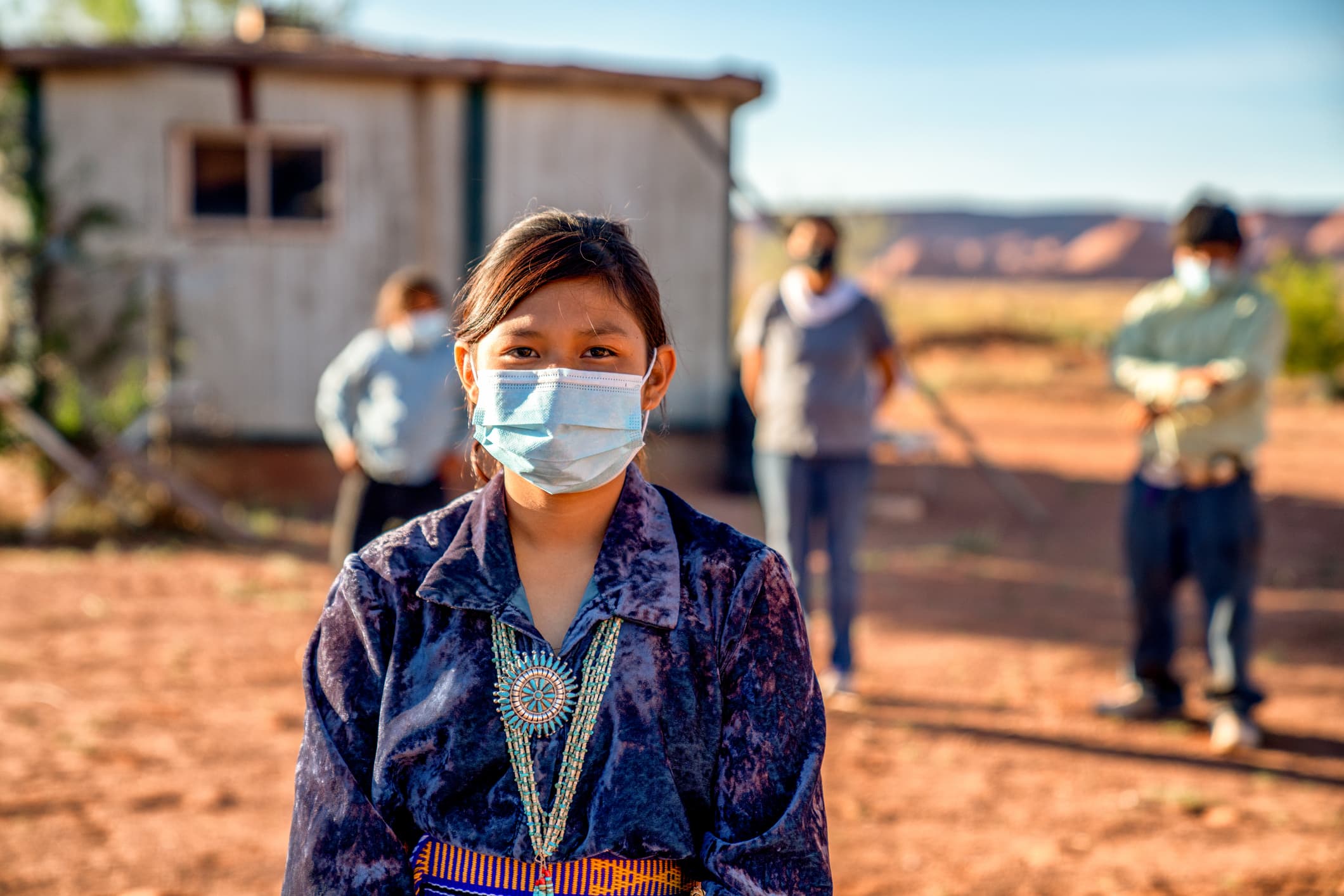
Native American women are on the front lines of the coronavirus crisis, with nearly 3 in 10 working a job that is considered essential during today’s pandemic, according to the National Women’s Law Center.
But, despite the critical work that Native American women do, they are still not compensated fairly for their labor. In fact, Native American women, on average, are paid approximately $0.60 for every dollar earned by White, non-Hispanic men, with women from some tribes, such as the Yaqui, making less than 50% of what their White male peers make. This means, that in order to earn the same amount White men earned the previous calendar year, the average Native American woman has to work an 10 additional months into the new year before equal pay is reached on October 1.
Over the course of a 40-year career, this loss in pay adds up to nearly $1 million, or $986,240 to be exact, according to NWLC. When broken down, this equals $24,656 in lost wages per year and $2,055 in lost wages per month.
Tony Anderson | DigitalVision | Getty Images
“I mean it’s absolutely shameful,” Jasmine Tucker, NWLC’s director of research, tells CNBC Make It about this wage gap. “[Native American women] are missing key opportunities over their lifetime to buy a house, to invest in higher education, to pay for their child’s education…I mean there are just all of these missed opportunities that compound into a larger wealth gap.”
This huge pay gap, Tucker says, also means that Native American women are less likely to have money saved up in order to weather the storm of today’s economic crisis.
Though Native American women make up just 0.3% of the overall workforce, they make up 0.5% of the front-line workers who are providing essential services today, with many of these jobs being in low-paying industries. For example, in personal care aide, home health aide and nursing assistant roles, Native American women make a median salary of $11.54 per hour, while White men in the same roles make a median salary of $14.42 per hour, according to NWLC data. In the role of a cashier or retail sales person, Native American women make a median salary of $9.62 per hour, while White men doing the same job make a median salary of $13.46 per hour.
“It comes back to, I think, just plain old sexism and racism,” Tucker says in regards to these pay disparities. She points out that historically women of color have always been paid far less than their White male peers, and for Native American women in particular, she says the rural areas that they often live in don’t give them much options for other opportunities. According to a 2017 report, roughly 54% of American Indian and Alaska Native people live in rural and small-town areas on or near reservations.
“There aren’t a lot of options for jobs there,” Tucker says. “And, employers can be choosy. They can hire whoever they want and they can keep paying women and Native American women less because, you know, where is she going to go? She doesn’t have a lot of other choices.”
Though it’s hard to find unemployment data broken down by sex for Native Americans, data from NWLC shows that like many other marginalized communities, Native American women are also feeling the brunt of today’s job losses. In April, when the national unemployment rate reached a record high of 14.7%, roughly 26.3% of Native Americans were unemployed. And though more than half of the jobs that have returned in recent months are in service sector industries that Native American women and other women of color are overrepresented in, these same jobs are the jobs that are at risk of being lost again if states reimpose lock downs due to Covid-19.
In addition to feeling the economic impact of today’s pandemic, research shows that Native Americans are also being disproportionately impacted by the health effects of the coronavirus. Early data from Harvard experts shows that in April, the Navajo reservation, which stretches across parts of Arizona, New Mexico and Utah, had the third-highest per capita rate of COVID-19 in the country, after New Jersey and New York. Like many other Black and Brown communities, Native Americans also have a higher risk of facing serious complications from Covid-19 due to high rates of diabetes, heart disease and other pre-existing health conditions.
“This pandemic has really laid bare all of the real structural problems that we have in the United States, and in the workforce in particular,” says Tucker. “I think we have to fight for unions. We have to fight for equal pay. There are a lot of policy solutions out there and I think if now’s not the time to fight for those, then when is it going to be the time?”
Check out: We analyzed 111 rewards cards, and the best one could earn you $2,000 over 5 years
Don’t miss: Sharice Davids: To close the pay gap for Native American women, pass the Paycheck Fairness Act




